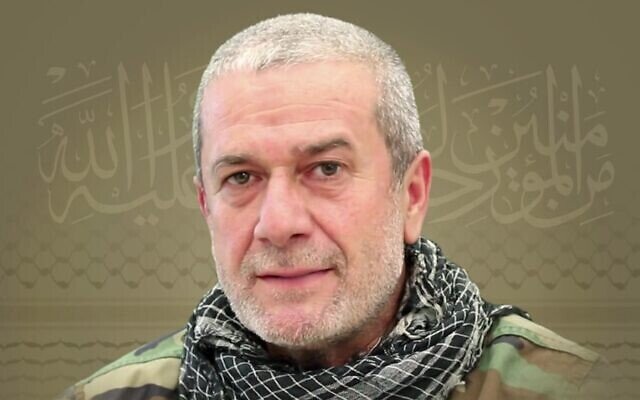In a significant escalation of hostilities, a senior Hezbollah commander was killed in an Israel Defense Forces (IDF) airstrike in southern Lebanon on July 1, 2024. The targeted strike is seen as a major blow to the militant group’s leadership and operational capabilities.
The IDF confirmed the operation, identifying the deceased commander as Hassan al-Sayyed, a high-ranking official within Hezbollah’s military wing responsible for orchestrating attacks against Israel. “Hassan al-Sayyed was directly involved in planning and executing terror operations against Israeli targets. This successful strike is part of our ongoing efforts to neutralize threats to our national security,” an IDF spokesperson said.
The airstrike took place near the town of Nabatieh, a known Hezbollah stronghold. The precision strike reportedly hit a convoy al-Sayyed was traveling in, resulting in his death and the destruction of the vehicle. The IDF emphasized that the operation was carried out based on accurate intelligence to minimize collateral damage.
Prime Minister Benjamin Netanyahu praised the IDF for its precision and effectiveness in eliminating a key threat. “This operation sends a clear message to Hezbollah and other terrorist organizations: we will find you and hold you accountable for your actions. Israel will not tolerate any threats to its security,” Netanyahu stated.
Defense Minister Yoav Gallant echoed these sentiments, highlighting the importance of preemptive measures in safeguarding Israel. “The elimination of Hassan al-Sayyed is a significant achievement in our fight against terrorism. Our forces will continue to operate wherever necessary to protect our citizens and our borders,” Gallant said.
Hezbollah has condemned the strike, vowing retaliation for the death of their commander. “This cowardly attack will not go unpunished. The resistance will respond forcefully to this aggression,” a Hezbollah spokesperson declared. This statement has raised concerns about potential escalation and further violence in the region.
The international community has reacted with a mix of support for Israel’s right to self-defense and calls for restraint to avoid further escalation. The United States expressed backing for Israel’s actions while urging caution. “We support Israel’s right to defend itself against terrorist threats. However, we also call for efforts to prevent further violence and maintain regional stability,” said a spokesperson for the US State Department.
The United Nations called for de-escalation and stressed the need for dialogue to resolve ongoing tensions. “We are deeply concerned about the potential for increased violence following this incident. It is crucial that all parties exercise restraint and work towards peaceful solutions,” said a UN representative.
The European Union also emphasized the importance of avoiding actions that could lead to further conflict. “We urge all parties to avoid any steps that could exacerbate the situation. Dialogue and diplomatic efforts are essential to achieving lasting peace and security in the region,” an EU representative stated.
As the situation develops, the focus will be on monitoring potential retaliatory actions from Hezbollah and efforts to prevent a broader conflict. The IDF remains on high alert, prepared to respond to any emerging threats.



